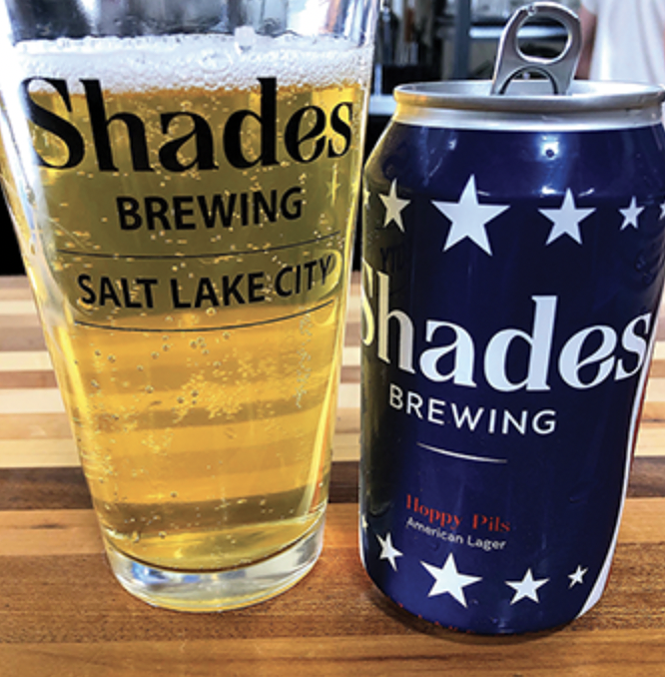Crisis Mode
Utah bar and restaurant owners urge lawmakers to update liquor licensing laws.
By Benjamin Wood @BjaminWoodUtah’s liquor laws are “outdated and unfair,” according to a group of two dozen bar and restaurant owners who signed an open letter on Wednesday, calling on state lawmakers to update licensing rules for businesses that serve alcohol.
The letter writers—which include representatives of Wasatch Brewery, Shades Brewing, Squatters Craft Beer, the Edison Alley Group, the Bourbon Group and several others—describe investing their time, money and entrepreneurial spirit into the dream of owning a business, only to see those dreams impeded, if not thwarted outright, by laws restricting the availability of liquor licenses.
“We are Utah business owners in crisis,” the letter states. “We are Utahns, we are voters, and we need your help.”
In Utah, the amount of available bar licenses is strictly limited and based on population. And while additional “restaurant” licenses are available and allow for the sale of some alcoholic products, those establishments are subject to additional rules around the design of their serving spaces and the ratio of food-to-alcohol sales.
It is common for dozens of applicant businesses to be in competition as individual liquor licenses trickle out from the Department of Alcoholic Beverage Control (DABC). And until recently, restaurants serving alcohol were required to construct a so-called “Zion Curtain” obscuring drink preparation from public view.
The letter states that many currently-closed businesses are on track to open within the next six months, but will likely remain closed for another year or more based on the current pace of licensing.
“Instead of focusing our attention on the tireless work of opening a new business,” the letter states, “we are stuck in limbo, unable to open our doors and uncertain if or when we will be able to do so.”
In the last few years, Utah lawmakers have passed both more- and less-restrictive legislation on the topic of alcohol sales and consumption. In addition to repealing the much-criticized Zion Curtain requirement, state law was updated in 2019 to allow for higher-point packaged beer (up to 5% alcohol-by-volume) to be sold in grocery stores. But the state also moved to one of the most restrictive DUI standards in the country, making it illegal to operate a vehicle with a blood-alcohol level above 0.05 percent.
Alexandra Ortiz of Shades Brewing, one of the letter signers, said she expects the hospitality industry’s requests to “fall on deaf ears.” But in addition to the amount of available licenses, she said improvements could be made by adjusting the food-to-alcohol sales requirements, allowing more bars to fall under the broader “restaurant” category in law. “Just last Sunday, we had to turn away over 40 patrons Downtown because they had kids with them,” she said. “Most bars and restaurants in Utah look very similar. The only difference is some establishments just can’t meet the 70/30 requirement.”
Because bar licenses are so scarce, Ortiz said that Shades Brewing had to transfer its license from the company’s South Salt Lake brewery to its new Shades Pub location on State Street. And while the brewery could qualify for a “tavern” license, she said, it would not allow for the serving of higher-point beer like the Pina Colada Sour, recently named Best Local Beer by City Weekly readers.
“I’m not sure what else to do—right now our taproom sits empty waiting for patrons that can’t wait to come in again,” Ortiz said. “We’ve just been through the toughest two years in hospitality history. It’s jobs for our people and their families, it’s raises they won’t get because we can’t afford it without the additional income, it’s promotions that are postponed, it’s out-of-state growth that’s on hold because we need the income to support it and it’s tax revenue cities like South Salt Lake won’t get because businesses like ours are closed or won’t open.”
And in addition to the financial costs of punitive laws, Ortiz said, are the social costs.
“It’s missing friends and smiling faces that regularly came in after a hard day’s work to unwind and enjoy a delicious brew,” she said.
The 2022 legislative session begins on Tuesday, Jan. 18. A copy of the open letter to Utah lawmakers will be published in next week's printed issue ofCity Weekly
Send comments to bwood@cityweekly.net
More by Benjamin Wood
-
‘Festival street,' Green Loop and transit-oriented density anchor latest SLC plans for west downtown.
Arrested Development
- Apr 17, 2024
-
Former Salt Lake City mayor and celebrated Utah Democrat Ted Wilson dies at age 84.
Ted Led
- Apr 11, 2024
-
Salt Lakers are about to miss an opportunity for reconnection over and under I-15.
Small Lake City
- Mar 27, 2024
- More »
Latest in News
Readers also liked…
-
Raise a glass for E.L.T Harrison, architect of the Beerhive building on Main
Small Lake City
- Oct 11, 2023




